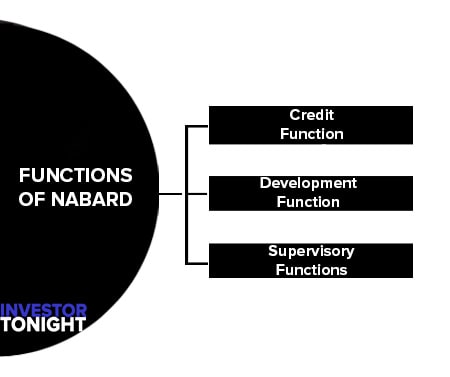Reserve Bank of India established in 1935 with a Mandate to set up a special Agricultural credit Department (ACD) with expert staff. RBI initiated different measures to develop a healthy rural credit structure and provided guidance to state governments and co-operative credit structure.
Agriculture Refinance corporation (ARC) was established in 1963 to support investment credit needs for agricultural development. Consequent to undertaking of development and promotional Functions, ARC was renamed as Agricultural Refinance and Development Corporation (ARDC) in 1972.
Table of Contents
RBI, at the instance of Government of India (G.O.I.) appointed a committee to Review arrangement for Institutional credit for agriculture and Rural Development [CRAFICARD] in 1979. The CRAFICARD reviewed the need of integrating short term, medium term and long term agriculture credit structure.
The CRAFICARD recommended the establishment of National Bank for Agriculture and Rural Development Act, the Indian Parliament passed 1981 and NARARD was established on 12 July 1982.
Objectives of NABARD
Below are the objectives of NABARD:
- Integrated rural development is main objective of NABARD.
- To provide training and Research facilities for rural Development.
- To keep a check on all the projects which are refinanced by NABARD; through timely inspection, monitoring and evaluation.
- To Act as a coordinator and regulator for rural credit institutions.
- NABARD was established with a mandate for promotion and development of agriculture, Small Scale industries, cottage and village industries, handicrafts and other rural crafts.
- To formulate rural credit plans on annual basis for all districts in country.
Organisation and Management of NABARD
NABARD has its head office at Mumbai, India. The NABARD is managed by a 15 member Board of Directors consisting chairman, managing director, two experts of rural economies, three experts from cooperative and commercial banks, three directors from current directors of RBI, three director from government of India and two representing the state government.
NABARD operates throughout the country with 28 regional office and sub office, located in the capital of all states and union territories. Each regional office has a Chief General Manager as it head. The head office has top executive like the executive director, managing director and the chairperson. It has 336 District offices across the country one special cells at Srinagar. It also has 6 training establishment.
Functions of NABARD
NABARD is an apex development bank which performs following functions.

Credit Function
NABARD prepares credit policy and guideline for rural financial institutions. It provides credit facilities to issuing organizations such as regional rural bank, cooperative banks commercial banks etc. while the ultimate beneficiaries of investment credit can be individuals, partnership concerns, companies, and state owned corporation or co-operative societies. Production credit is generally given to individual.
It provides refinance facilities to all small scale industries, agriculture sector and rural development. It also provides credit facilities in the event of natural calamities.
It promotes self help group to act as institutions of micro finance. This helps in spread of credit to the remotes areas.
Development Function
Credit is most important factor in development of agriculture and rural sector which helps in capital formation and technological up gradation.
Various initiatives have been taken to strengthen the corporative credit structure and RRBs, So that adequate and timely credit is made available to the needy.
NABARD provides credit facilities for developmental activities such as:
- Provides assistance for self development of RRBs commercial banks and cooperatives banks.
- Helps to RRBs commercial banks and cooperatives banks by providing training to senior and middle level executives.
- It uses Vikas Volunteer Vahini and farmers clubs to generate awareness on ethics of repayment.
- It provides the funds for developments of agriculture and rural developments.
- Helps in human resource development organization development and agriculture development through various institutions like national bank staff college lucknow, bankers institute of rural development lucknow and college of agriculture banking Pune.
Supervisory Functions
Under provision of banking regulation Act 1949, it undertakes inspection of RRB’s and cooperative banks. It also undertakes voluntary inspection of state cooperative agriculture and rural development banks and apex non credit cooperative societies. All RRB’s and cooperative banks submitting return to the RBI are required to furnish a copy of return to NABARD.
It can ask RRB’s and cooperative banks to Submit any information which it needs. All the application for the opening of new branches by RRB,s and stare cooperatives banks which are require to submitted to RBI are routed through NABARD. Board of supervision has been constituted by NABARD under section13 (3) of NABARD Act, 1981 as an internal committee to Board of Directors of NABARD.
sj191514@gmail.com
Great work . Thank you so much